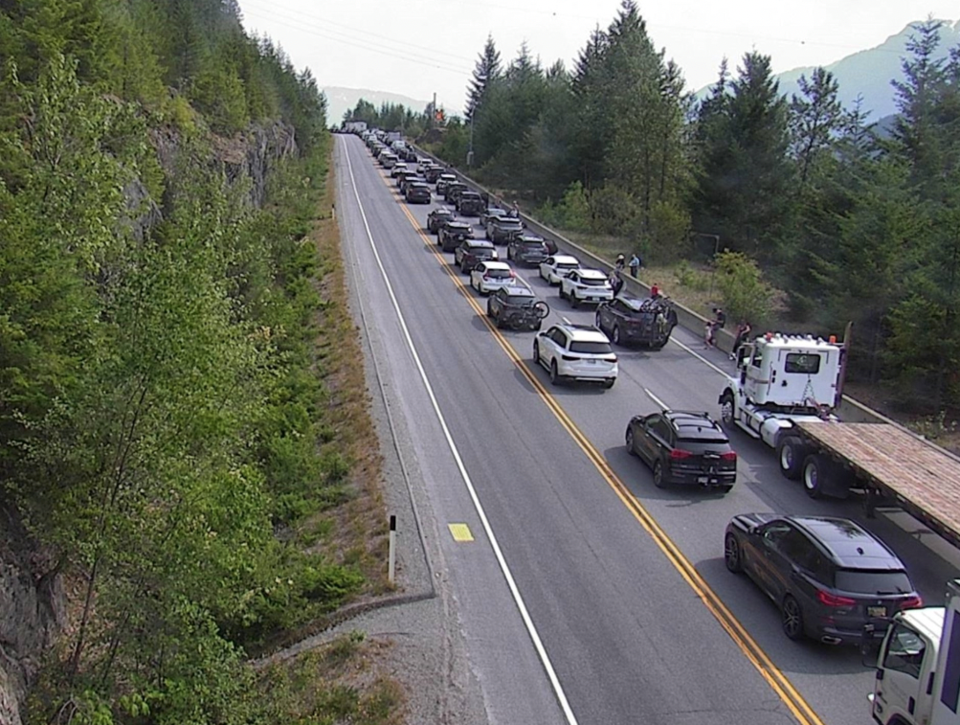The B.C. RCMP’s Integrated Services covers a whole lot of ground when it comes to policing. Made up of five separate teams that offer specialized policing services to participating local governments, the head of I-Teams, as it’s known, was in Whistler last month presenting to mayor and council. While the discussion at the Committee of the Whole meeting covered a wide range of topics, much of the talk near the end of the session centred on a persistent thorn in the side of Whistler motorists: lengthy closures of Highway 99 following a motor vehicle accident.
“I think it’s fair to say it has been a concern of the community, the length of time the highway was being closed,” said Ted Battiston, the Resort Municipality of Whistler’s (RMOW) GM of corporate and community services, during the meeting, referring to past discussions between local officials and I-Teams. “Generally, I think both sides understand the value of shorter response times, and things have moved in a positive direction since that time. It’s been more recently less of a focus from our team to continue those conversations, but it remains important to us and I think some of the things that were explained today speak to the fact that they understand it’s important to us.”
The Integrated Collision Analysis and Reconstruction Service (ICARS) is one of the RCMP’s five aforementioned integrated policing units, which responds in partnering communities whenever a potentially criminal vehicle collision leads (or could lead) to a fatality or serious injury. Whistler represented 1.12 per cent of ICARS’ 178 calls last year. Over the past five years, ICARS attended Whistler accidents a total of six times, while the entire length of Highway 99 saw ICARS respond 49 times over that span.
Asked about ways to reduce response times, I-Teams chief superintendent Bruce Singer acknowledged the inconvenience around wait times, but stressed that evidence gathering will always take priority.
“It’s unfortunate it takes the time it does, but it is very meticulous,” he said. “We have one shot at getting that evidence, and if we lose that evidence, we might as well not even come up for the investigation.”
When RMOW officials met with I-Teams representatives several years ago, Mayor Jack Crompton said there was discussion of installing an ICARS centre in Squamish to help trim response times.
“One of the things that came up was that the significant factor was not actually doing the work, but getting to the location,” he said. “It may make sense at some point to interact like that again and review that data. Maybe the province could pick up more of the costs, since the majority of accidents are in their jurisdiction, which may allow us to put an ICARS team in Squamish, which may be costly, but saves money overall for the province of B.C. and our region.”
Singer noted opening an ICARS facility in the Sea to Sky would cost “multimillion” dollars “just to staff it, let alone the infrastructure to go with it.”
As it stands, participating local governments cover a portion of the costs for I-Teams services, which includes the Integrated Homicide Investigation Team and the Integrated Emergency Response Team.
While ICARS is based in Surrey, Singer also explained it’s not a centralized team in the traditional sense.
“We have a number of people that live on the North Shore with ICARS. We’ve got two West Vancouver police officers that respond quite often, so you’re getting a fairly quick response time with respect to ICARS,” he explained. “Centralized is kind of a misnomer. Yes, we’re out of Green Timbers, but very rarely do you see a police officer sitting there waiting for the next call to come in. Almost all the time they are starting at home wherever they’re at, or at a local detachment.”





